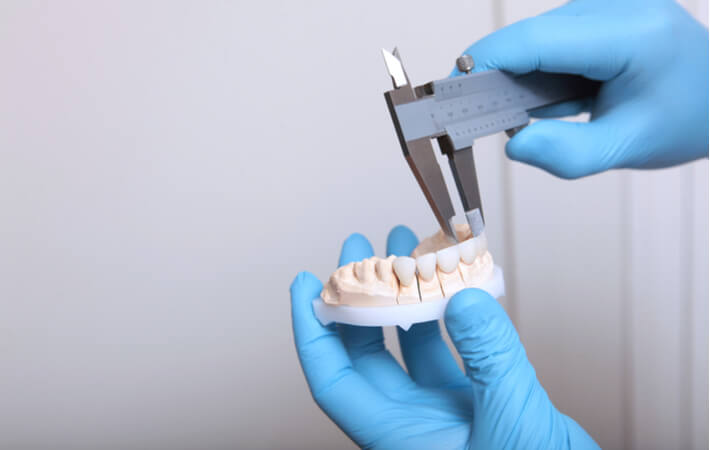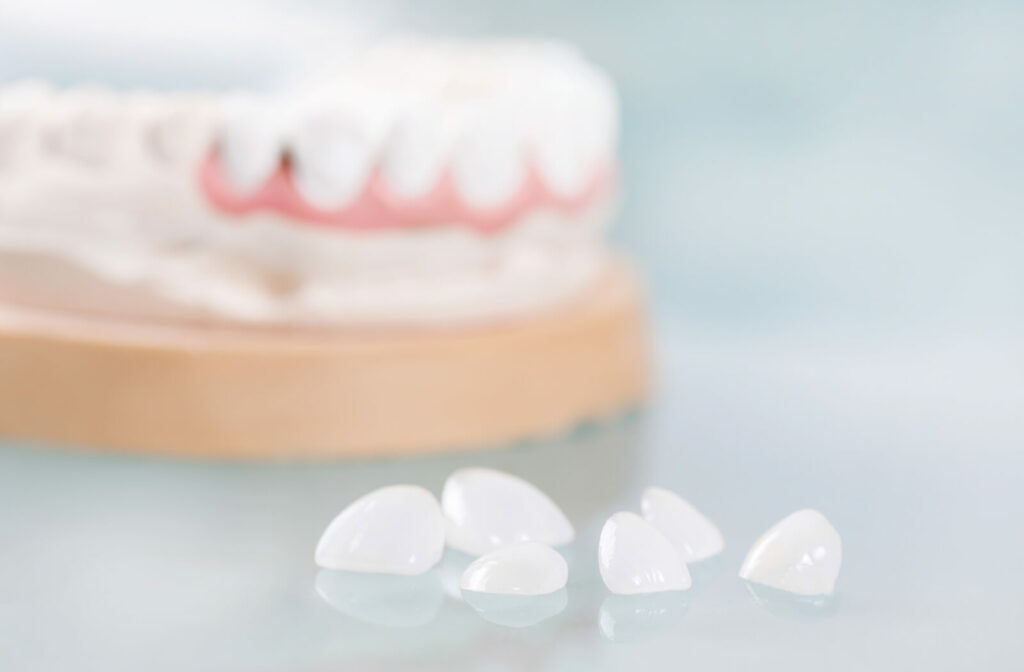What are the Differences Between Composite and Porcelain Veneers?
Dental veneers are thin shells, the colour of teeth, which attach to the front surface of teeth to improve the appearance of your teeth and, ultimately, your smile. Cosmetic dentistry uses veneers as the perfect way to solve imperfections, chips, discoloration, broken teeth, or small teeth.
Marks Dentistry can help take care of all your dental needs. And if that means looking for a whiter smile with uniform teeth, then dental veneers are a solution we can explore together. Dental veneers are not for everyone, though and may not benefit people who grind their teeth or clench them at night.
We discuss the types of veneers: composite and porcelain, and the differences between them. So you have all the information needed to decide which one works best for your needs.
What Are Composite Veneers
Composite veneers, made from resin, are the same material used for teeth bonding. They are colour matched to your teeth, are usually minimally invasive, and can last a long time.
There are 2 types of composite veneers: direct and indirect. The material used is the same in both, only the application is different.
- Direct Composite Veneers
Also called composite bonding, these veneers are shaped, sculpted, and applied directly to the teeth. There is usually minimal preparation of teeth, thus sometimes reversible, and you don’t have to wait for or wear temporary veneers.
A high-intensity light hardens and cures the resin, with the ability to add additional layers if necessary to achieve the desired outcome. The resin is then polished to give a natural appearance.
- Indirect Composite Veneers
These veneers, made in an off-site dental laboratory, are applied after teeth preparation with adhesive. Teeth prep is the same as for direct composite veneers with little to no removal of the tooth structure.
What Are Porcelain Veneers
Porcelain veneers, made from porcelain, are a stronger material than resin and have a translucent quality, much like the enamel on your teeth. These are custom-made in the lab.
Porcelain veneers involve more tooth preparation, such as removing some enamel without damaging the tooth underneath. It ensures the veneers fit comfortably over the natural tooth.

The Difference Between Composite and Porcelain Veneers
Dental veneers are an easy fix to improving your smile and keeping it that way for many years to come. The hardest part about dental veneers is knowing which option to choose. Taking a closer look at the difference between composite and porcelain can help make that decision easier.
Cost
Both composite and porcelain veneers fall under cosmetic dentistry and, therefore, may not be covered by insurance. Composite veneers come at a lower cost.
Porcelain veneers cost more because they require more expertise for application and resources to make. If porcelain veneers do break, there is no repairing, only replacing.
Durability
Composite veneers are not as strong. They may chip, need repair, or replacement more often than porcelain veneers. Ideally, they can last between 5 to 7 years.
Porcelain veneers are of a stronger material and are less prone to chipping. Ideally, they can last at least 10 years, sometimes as long as 20 years.
Preparation Time
Composite veneers have a shorter application process as they are applied directly if using direct veneers. You can walk in and walk out the same day with a beautiful smile.
Porcelain veneers can take 3 or more visits to your dentist. Visits may include an evaluation and treatment plan, teeth preparation, and veneer bonding.
Aesthetic Appeal
Composite veneers can conceal many teeth issues, such as irregular teeth, and it can be a reversible procedure. They, however, can stain over time as your natural enamel would.
Porcelain veneers are great because they resist staining and discoloration. They also shine and mimic the look of natural teeth.
The Right Solution for You
Do imperfect, discoloured, chipped, or broken teeth keep you from smiling? Then, veneers may be the solution for you. The great thing about veneers is that you can get one or many to create the smile of your dreams.
Marks Dentistry knows that a happy and healthy smile is the key to overall well-being. If you would like to learn more or get a recommendation, book an appointment with our Etobicoke dentist today to get a customized treatment plan that suits your budget, timeline, and aesthetic goals.




